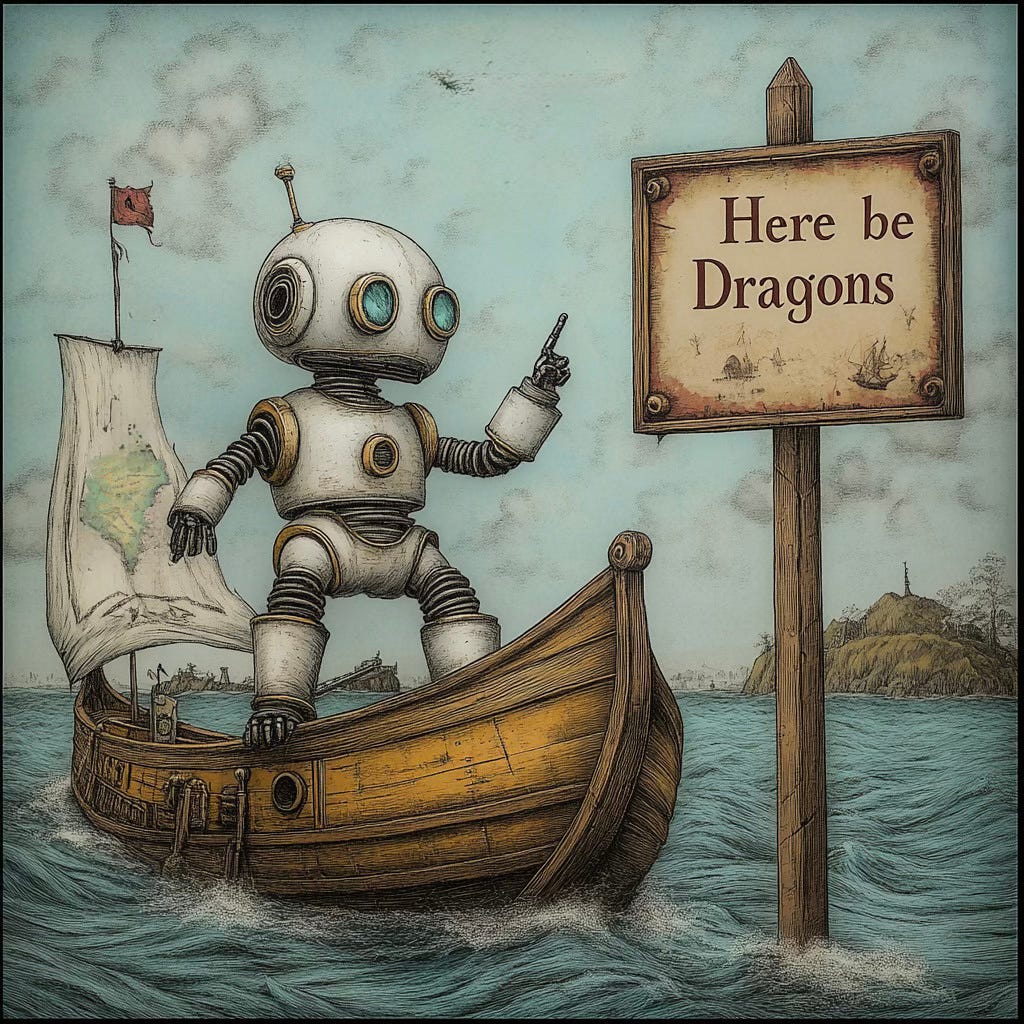The Alchemy of Failure
Why AI Can’t Master the Art of Losing
AI has the potential to win every game it’s programmed to play, but it’ll never know the bittersweet taste of losing. It will never know the pain of reflecting on what went well or could have been done better, or even not done not at all. Whether we like it or not, failure, error, and mistakes are how we learn and grow quickest. Think of the first baby steps, or the first attempts to ride a bicycle. Impossible things to learn until after many falls, bumps, and bruises.
Our education system fails us because it focuses on teaching us to be right all the time. Being wrong is treated like a crime. Accurate recall of facts is all that matters for progress through the system by means of testing and examinations. Great for parrots but, as we see around us, beyond passing a job interview, not a lot of use for living a life. But if we don't kill or maim ourselves on our adventures then by going beyond our level of our competence into the unknown we learn the really important stuff, consideration for others, understanding, empathy, endurance, the value of persistence, self-belief, and so on.
There is nothing intrinsically smart about learning a bunch of data and so-called facts to pass an exam. As any teacher will tell you, for most students, if you do the work you will pass. Having brains speeds things up, in some cases by quite a bit, but it is just a process of ingestion, gestation, and regurgitation. Real intelligence is a mixture of capability, inspiration and experience. Facts are useful but knowing where the facts are is better. What is even better than that is knowing where the limits of the envelope of the possible is. To find that edge of the known and unknown you often have to journey into uncharted territory and that might be a little painful from time to time. But anyone who wants to do anything has to know they are going to get a bruising on the way. It is just how it is.
AI is teacher's pet. It takes everything in and it remembers everything. It can spit it out again on demand, perfectly, time and time again. People claim this constitutes intelligence. I think it is just about as dumb as you can get.
AI processes cannot venture into the void where knowledge and information are absent. It can project possibilities and generate novelty but that is not the same thing. We can all do that to a certain extent. It can't cross the boundaries of its knowledge because in a deeply paradoxical way there is no boundary. There is just information or no information. In a weird way it might as well be infinite. We live in an expanding universe but it might as well be infinite as there is no edge where what we think of as the universe ends and whatever is beyond it exists. AI can't conceive of its limits in the same way we can't conceive of what exists beyond infinity.
But as humans, if we seek to find our limits by exceeding them then we learn very valuable things about ourselves and the world. Think of any kind of physical training. We can't operate at the limits all the time but we can train ourselves so that when we reach or exceed our limits we can do it with the confidence in knowing that if all goes wrong what we will learn will probably not be too costly and will still make it all worthwhile.
AI does get things wrong. As amazing as it is, it is not perfect. But on the whole, it either succeeds within its operational parameters or it spits out gibberish. Humans, though—we stumble, grieve, and we learn and adapt. In the difficult and challenging encounters with failure we can find the ideas and inspiration that light up creativity and innovation. Contrast that with AI: feed it a prompt, and it spits out bland, predictable, and soulless work. If it makes a mistake, there’s no anguish. It just recalibrates and tries again, blind to the weight of defeat.
I do not want to romanticise failure, it can be brutal and humiliating, too much so, sometimes. But it can give us lessons that we cannot learn any other way. Of course, it doesn't feel like that when you fall off your bike for the umpteenth time. But without the experience of overcoming obstacles and the learning that comes with that, there’s no transformation—just replication.
Source reading material:
Boden, M. A. (2004). *The creative mind: Myths and mechanisms* (2nd ed.). Routledge.
Csikszentmihalyi, M. (1996). *Creativity: Flow and the psychology of discovery and invention*. HarperCollins.
Prigogine, I., & Stengers, I. (1984). *Order out of chaos: Man’s new dialogue with nature*. Bantam Books.
Simonton, D. K. (1999). *Origins of genius: Darwinian perspectives on creativity*. Oxford University Press.
Stokes, P. D. (2005). *Creativity from constraints: The psychology of breakthrough*. Springer.



I have never got chatgpt to say, "I don't know".. seems like a starting point for moving towards the unknown where growth through perseverance happens..